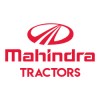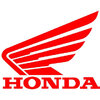Filter interviews by
Mahindra Tractors Interview Questions and Answers
27 Interview questions
Supply Chain Management (SCM) involves overseeing and optimizing the flow of goods, information, and finances from suppliers to customers.
SCM encompasses planning, sourcing, manufacturing, delivery, and returns.
Example: A company forecasts demand to plan production schedules.
Sourcing involves selecting suppliers and negotiating contracts.
Manufacturing includes converting raw materials into finished products.
Delive...
7QC tools are a set of basic statistical tools used for quality control and process improvement.
7QC tools include Pareto chart, cause-and-effect diagram, control chart, histogram, scatter diagram, flowchart, and check sheet.
These tools help in identifying and solving quality-related issues in a systematic manner.
For example, a Pareto chart can be used to prioritize the most significant factors affecting quality in...
Sigma rule is a statistical concept used in Six Sigma methodology to determine the percentage of data points that fall within a certain number of standard deviations from the mean.
Sigma rule is based on the normal distribution curve.
It states that for a normal distribution, approximately 68% of data falls within one standard deviation from the mean, 95% within two standard deviations, and 99.7% within three standa...
5S system is a methodology for organizing a workplace, focusing on efficiency and safety.
Sort: Separate necessary items from unnecessary ones.
Set in order: Arrange items in a logical and efficient manner.
Shine: Clean and maintain the work area.
Standardize: Establish standards and procedures for maintaining the first 3 S's.
Sustain: Ensure the system is consistently followed and improved upon.
Example: Labeling tools...
The engine is a machine designed to convert energy into mechanical motion.
The engine is the heart of any vehicle or machinery, providing power to move or operate.
Engines can be classified into different types such as internal combustion engines, steam engines, and electric motors.
Examples of engines include car engines, jet engines, and diesel engines.
Engines require fuel, air, and a source of ignition to function...
Diesel engines use compression ignition while petrol engines use spark ignition.
Diesel engines use compression ignition while petrol engines use spark ignition
Diesel engines are more fuel efficient than petrol engines
Petrol engines generally have higher power output compared to diesel engines
Diesel engines have higher torque at lower RPMs
Diesel engines are typically more durable and have longer lifespans than petr...
Two stroke engines have a power stroke every two strokes of the piston, while four stroke engines have a power stroke every four strokes.
Two stroke engines have a simpler design with fewer moving parts compared to four stroke engines.
Two stroke engines require a mixture of oil and fuel for lubrication, while four stroke engines have a separate oil reservoir for lubrication.
Examples of two stroke engines include ch...
There are two main types of engines: internal combustion engines and external combustion engines.
Internal combustion engines: gasoline engines, diesel engines
External combustion engines: steam engines
Other types include rotary engines, electric engines, etc.
A flywheel is a mechanical device used to store rotational energy and smooth out fluctuations in speed of a rotating shaft.
Flywheels store energy by increasing their rotational speed.
They release energy by slowing down their rotational speed.
Flywheels are commonly used in engines to maintain a constant speed and reduce vibrations.
They are also used in vehicles to provide momentum during gear changes.
Technical skills in mechanical engineering include CAD software proficiency, knowledge of thermodynamics, and proficiency in material science.
Proficiency in CAD software such as AutoCAD, SolidWorks, or CATIA
Knowledge of thermodynamics and heat transfer principles
Understanding of material science and properties of materials used in engineering
Ability to perform stress analysis and structural design
Knowledge of flui...
Mahindra Tractors Interview Experiences
42 interviews found
I applied via Walk-in and was interviewed in Aug 2024. There was 1 interview round.
(5 Questions)
- Q1. What's the Engine ?
- Ans.
The engine is a machine designed to convert energy into mechanical motion.
The engine is the heart of any vehicle or machinery, providing power to move or operate.
Engines can be classified into different types such as internal combustion engines, steam engines, and electric motors.
Examples of engines include car engines, jet engines, and diesel engines.
Engines require fuel, air, and a source of ignition to function prop...
- Q2. How many types of engine?
- Ans.
There are two main types of engines: internal combustion engines and external combustion engines.
Internal combustion engines: gasoline engines, diesel engines
External combustion engines: steam engines
Other types include rotary engines, electric engines, etc.
- Q3. What are the differences between Diesel and petrol Engine?
- Ans.
Diesel engines use compression ignition while petrol engines use spark ignition.
Diesel engines use compression ignition while petrol engines use spark ignition
Diesel engines are more fuel efficient than petrol engines
Petrol engines generally have higher power output compared to diesel engines
Diesel engines have higher torque at lower RPMs
Diesel engines are typically more durable and have longer lifespans than petrol en...
- Q4. Tell me about flywheel working principle?
- Ans.
A flywheel is a mechanical device used to store rotational energy and smooth out fluctuations in speed of a rotating shaft.
Flywheels store energy by increasing their rotational speed.
They release energy by slowing down their rotational speed.
Flywheels are commonly used in engines to maintain a constant speed and reduce vibrations.
They are also used in vehicles to provide momentum during gear changes.
- Q5. Do you know two stroke and four stroke engine?
- Ans.
Two stroke engines have a power stroke every two strokes of the piston, while four stroke engines have a power stroke every four strokes.
Two stroke engines have a simpler design with fewer moving parts compared to four stroke engines.
Two stroke engines require a mixture of oil and fuel for lubrication, while four stroke engines have a separate oil reservoir for lubrication.
Examples of two stroke engines include chainsa...
Interview Preparation Tips
- Automobile
- Internal combustion
- External combustion engine
- Transmission
- Gear Box
I appeared for an interview in Mar 2025, where I was asked the following questions.
- Q1. According to you as a employer tell me for increasing sales in which sector we improve more ,either we increase our advertisement or add more technology?
- Ans.
Balancing advertisement and technology is key; both can drive sales but their impact varies by sector.
Advertisement increases brand visibility; for example, a strong social media campaign can attract new customers.
Technology enhances customer experience; for instance, using CRM systems can streamline sales processes and improve customer relationships.
In sectors like retail, advertisements can drive foot traffic, while ...
- Q2. If you are a employer in mahindra tell me 3 qualities from which coustomer attracts towards mahindra or 3 qualities to increase coustomer's satisfaction?
- Ans.
Mahindra attracts customers through quality, innovation, and strong customer support, enhancing overall satisfaction.
1. Quality Products: Mahindra is known for its durable and reliable vehicles, such as the Mahindra Thar, which withstand tough terrains.
2. Innovation: The introduction of electric vehicles like the Mahindra eVerito showcases the company's commitment to sustainability and modern technology.
3. Strong Custo...
Interview Preparation Tips
I appeared for an interview before Jun 2024, where I was asked the following questions.
- Q1. What is the SCM and there process
- Ans.
Supply Chain Management (SCM) involves overseeing and optimizing the flow of goods, information, and finances from suppliers to customers.
SCM encompasses planning, sourcing, manufacturing, delivery, and returns.
Example: A company forecasts demand to plan production schedules.
Sourcing involves selecting suppliers and negotiating contracts.
Manufacturing includes converting raw materials into finished products.
Delivery en...
- Q2. How you handle the situation
- Ans.
I approach challenges in supply chain management with a strategic mindset, focusing on collaboration and data-driven solutions.
Identify the root cause of the issue through data analysis and team discussions.
Collaborate with cross-functional teams to brainstorm potential solutions, like adjusting inventory levels.
Implement a pilot solution and monitor its effectiveness, such as testing a new supplier for reliability.
Com...
I applied via Walk-in and was interviewed in Aug 2024. There were 2 interview rounds.
(2 Questions)
- Q1. Starter motor problem
- Ans.
The starter motor problem may be caused by issues with the battery, ignition switch, or starter itself.
Check the battery to ensure it has enough power to start the engine.
Inspect the ignition switch for any signs of damage or wear.
Test the starter motor to see if it is functioning properly.
Look for loose or corroded connections in the starter motor circuit.
Consider checking the starter solenoid as well.
- Q2. Sheet metel crecked
(2 Questions)
- Q1. Good experience
- Q2. 10 year experience
- Ans.
I have over 10 years of experience in supervising work teams and ensuring projects are completed efficiently and effectively.
Managed work crews on various construction projects
Implemented safety protocols to ensure compliance with regulations
Provided training and guidance to team members to improve performance
Developed and maintained schedules to meet project deadlines
Interview Preparation Tips
I appeared for an interview in Dec 2024.
20 boys line handled by me
(3 Questions)
- Q1. What is 5S system
- Ans.
5S system is a methodology for organizing a workplace, focusing on efficiency and safety.
Sort: Separate necessary items from unnecessary ones.
Set in order: Arrange items in a logical and efficient manner.
Shine: Clean and maintain the work area.
Standardize: Establish standards and procedures for maintaining the first 3 S's.
Sustain: Ensure the system is consistently followed and improved upon.
Example: Labeling tools and ...
- Q2. What is 7Qc tool
- Ans.
7QC tools are a set of basic statistical tools used for quality control and process improvement.
7QC tools include Pareto chart, cause-and-effect diagram, control chart, histogram, scatter diagram, flowchart, and check sheet.
These tools help in identifying and solving quality-related issues in a systematic manner.
For example, a Pareto chart can be used to prioritize the most significant factors affecting quality in a pr...
- Q3. What is Sigma rule
- Ans.
Sigma rule is a statistical concept used in Six Sigma methodology to determine the percentage of data points that fall within a certain number of standard deviations from the mean.
Sigma rule is based on the normal distribution curve.
It states that for a normal distribution, approximately 68% of data falls within one standard deviation from the mean, 95% within two standard deviations, and 99.7% within three standard de...
Interview Preparation Tips
I applied via Company Website and was interviewed in Aug 2024. There was 1 interview round.
(2 Questions)
- Q1. What is work on company
- Q2. What is Salary on this company
I appeared for an interview in Mar 2025, where I was asked the following questions.
- Q1. Ms office tally
- Q2. Accounting , Finance
I applied via Company Website and was interviewed in Jul 2024. There was 1 interview round.
(2 Questions)
- Q1. What are technical skills in mechanical?
- Ans.
Technical skills in mechanical engineering include CAD software proficiency, knowledge of thermodynamics, and proficiency in material science.
Proficiency in CAD software such as AutoCAD, SolidWorks, or CATIA
Knowledge of thermodynamics and heat transfer principles
Understanding of material science and properties of materials used in engineering
Ability to perform stress analysis and structural design
Knowledge of fluid mec...
- Q2. What is a technical role?
- Ans.
A technical role involves using specialized knowledge and skills to perform tasks related to a specific field or industry.
Involves applying technical expertise to solve problems
Requires knowledge of specific tools, technologies, and processes
May involve designing, testing, or implementing technical solutions
Examples include mechanical design engineer, quality control engineer, maintenance engineer
(2 Questions)
- Q1. Inventory management
- Q2. Line feeding
(2 Questions)
- Q1. About Salary structure and expections
- Q2. Qualification
I applied via Naukri.com and was interviewed in May 2024. There was 1 interview round.
(2 Questions)
- Q1. Vernier least count
- Ans.
The vernier least count is the smallest measurement that can be accurately read using a vernier scale.
The least count is calculated as the difference between one main scale division and one vernier scale division.
For example, if 1 main scale division (MSD) = 1 mm and 10 vernier scale divisions (VSD) = 9 mm, then least count = 1 MSD - (9/10) MSD = 0.1 mm.
A smaller least count allows for more precise measurements, making...
- Q2. What is 5s kaizen tpm
- Ans.
5S Kaizen TPM is a methodology for workplace organization, continuous improvement, and maintenance in manufacturing.
5S focuses on organizing the workplace to improve efficiency and safety
Kaizen involves continuous improvement through small incremental changes
TPM (Total Productive Maintenance) aims to maximize equipment effectiveness through proactive maintenance
Combining these methodologies helps create a culture of co...
Interview Preparation Tips
- Field related
- CNC Machines
- Assembly
- Technical
Top trending discussions






Mahindra Tractors Interview FAQs
The duration of Mahindra Tractors interview process can vary, but typically it takes about less than 2 weeks to complete.
Tell us how to improve this page.
Mahindra Tractors Interviews By Designations
- Mahindra Tractors Diploma Trainee Engineer Interview Questions
- Mahindra Tractors Engineer Interview Questions
- Mahindra Tractors Customer Service Officer Interview Questions
- Mahindra Tractors Deputy Manager Interview Questions
- Mahindra Tractors Purchase Executive Interview Questions
- Mahindra Tractors Manager Interview Questions
- Mahindra Tractors Assistant Manager Interview Questions
- Mahindra Tractors Quality Engineer Interview Questions
- Show more
Interview Questions for Popular Designations
- Executive Interview Questions
- Team Lead Interview Questions
- Intern Interview Questions
- Senior Associate Interview Questions
- Senior Engineer Interview Questions
- Graduate Engineer Trainee (Get) Interview Questions
- Senior Software Engineer Interview Questions
- System Engineer Interview Questions
- Show more
Overall Interview Experience Rating
based on 59 interview experiences
Difficulty level
Duration
Interview Questions from Similar Companies
Mahindra Tractors Reviews and Ratings
based on 762 reviews
Rating in categories
|
Deputy Manager
139
salaries
| ₹10 L/yr - ₹16.8 L/yr |
|
Assistant Manager
110
salaries
| ₹6 L/yr - ₹14 L/yr |
|
Diploma Trainee Engineer
100
salaries
| ₹1.1 L/yr - ₹3 L/yr |
|
Production Supervisor
42
salaries
| ₹1.2 L/yr - ₹5.1 L/yr |
|
Production Engineer
38
salaries
| ₹1.4 L/yr - ₹4 L/yr |

Tata Motors

Maruti Suzuki

Ashok Leyland

Hero MotoCorp
- Home >
- Interviews >
- Mahindra Tractors Interview Questions











